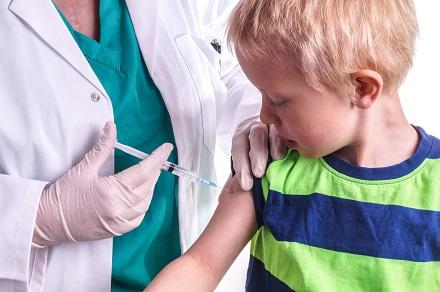

According to epidemiologists, individuals weakened by the flu could be at greater risk for the most serious aspects of COVID-19 – and those already suffering from COVID could be in even more danger, should they contract the flu.
Unfortunately, a recent poll shows one in three parents won’t have their kids vaccinated against it – something that could wreak havoc on youth sports this season.
With many sports events just beginning to reopen to spectators, the emphasis on preventive measures – everything from hand washing to mandatory masks – has never been stronger. While there's no way to determine exactly how bad a flu season will be, the medical community is in agreement that the overlap between the flu season and the COVID-19 pandemic could cause issues.
"The biggest concern is that we have seasonal increases in the flu from December or November through March, and at that time, many hospitals go into surge crisis (mode)," Dr. Albert Ko, a professor of epidemiology and medicine at the Yale School of Public Health in New Haven, Connecticut, told The TODAY Show. "Beds are filled, and so the big concern is that if our hospitals are already filled with flu, what happens if we have a parallel epidemic of COVID? How do we deal with that?"
It’s something event owners need to take into consideration. Even those who formerly stayed out of the flu shot debate might need to wade into the fray this year, considering what is at stake.
The fact that sports are, for much of the U.S., heading indoors, is compounded by the fact that people are feeling fed-up with taking precautions.
"The big concern this year, of course, is that we are going to see what could be a perfect storm of accelerated COVID-19 activity as people gather more inside, in particular, as they become continually fatigued with the mask wearing, the social distancing, and the hand hygiene, and as they are exposed to seasonal influenza," Jeanne Marrazzo, MD, MPH, director of the division of infectious diseases at the University of Alabama at Birmingham, said recently during an Infectious Disease Society of America (IDSA) briefing.
That "perfect storm" could lead to the nation's hospitals being stretched to capacity, as both flu patients and those infected by SARS-CoV-2 (the virus that causes COVID-19) seek care.
Already, colleges having in-person classes have cancelled or drastically shortened spring break season, in the pursuit of keeping students from going out to far-flung destinations and becoming infected, thus starting what scientists are calling a “twin-demic” of flu and COVID. And it’s hard to argue with the reasoning, according to The Points Guy, since a number of universities saw serious outbreaks among their student and employee population after students traveled over Spring Break 2020, and transmitted COVID across campus upon their return.
Putting an emphasis on getting a flu shot (and for athletes that fall into the senior category, a shingles shot as well) could create more personal safety; however, it’s sure to stir up the anti-vaxxer debate. Expect that debate to ramp up yet again when a COVID-19 vaccine comes out. While multiple options for COVID vaccines are in the works, nothing is expected to be ready until 2021, perhaps by mid-year at the soonest, according to the BBC.
While there is no perfect scenario when it comes to mandating or recommending vaccines, tournament directors should recall that large gatherings have previously been linked to everything from mumps to the flu – and everything in between, including measles. The flu shot, while it won’t prevent COVID, will prevent the flu, and according to medical professionals, a flu shot will keep people out of health care centers for treatment of the flu – where they would be likely to be exposed to potentially infected people.
In polls of SDM readers, vaccination against the flu (as well as other diseases) has long been a topic of great interest. In the most recent poll, more than 75 percent of respondents said that if a vaccine against COVID were developed tomorrow, they would mandate it as a condition of registration for their events.

